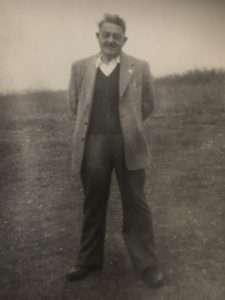It has to be acknowledged, Somerset is not an easy place for road maintenance. Country roads are frequently narrow, bounded by high hedges or deep ditches. Roads crossing Sedgemoor are built on peat, they subside easily creating roller coaster routes, at bridges the tarmac becomes disconnected from concrete and steel. Towns and villages that have stood since medieval times are a challenge for those who have to facilitate access by Twenty-First Century vehicles. However, there do seem to be times when the engineers of the county roads department appear to be conspiring to confound unwitting drivers.
Trying to drive from the M5 motorway to get home, the main road towards Glastonbury was barricaded. Signs announced that it was closed for roadworks and diverted traffic toward Bridgwater. At Bridgwater, Google Maps said the diversion was to the left, which then brought another barricade, another diversion and a drive through a speed-bumped housing estate. Would it have demanded too much of the engineers to have asked each other when they were planning their work? Perhaps it is the lockdown, perhaps there is a backlog, perhaps it is possible that entire sections of the county will be enclosed by barricades.
Roadworks are not just an inconvenience, they arouse childhood fears. Passing the heavy machinery used to carry out the work, recalls childhood memories of the tarmac machine itself, the noise, the flames, the steam.
Perhaps to a pre-school boy the machine seemed like some mechanical dragon. It looms menacingly in a very specific memory. A clear and dry day, probably in springtime, for tar melts in high summer, at my grandparents’ farmhouse between Langport and Long Sutton. The A372 that passed the farm was being resurfaced. There must have been notification that this was about to happen, for I was filled with apprehension at the coming of the tarmac machine. When the time came for the tarmac machine to pass the front of the house, I hid behind the settee in my grandmother’s front room. It is probably fifty-five years ago, but I can still recall the fear of the moment and I can still feel the texture of the fabric against my hand.
Perhaps the health and safety concerns that lead to road closures bring an unexpected benefit. The barricades mean that there is no possibility of passing in close proximity of the road repair machinery. There is no possibility of an encounter with dragons.


